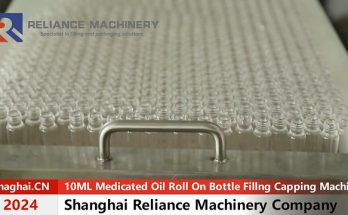Water Filter and Purifier
A water filter removes impurities from the water to make it safer to drink. It works by physically removing sediment, bacteria and protozoa. Some filters also remove viruses.
Look for manufacturers who show you their testing certificates online or upon request. Some companies only complete part of the test, not the entire one!
What is a water filter and purifier?
A water filter and purifier both remove contaminants from drinking water to make it safe to drink. They both use a variety of methods to achieve this including: sediment, mechanical, absorption, ion exchange and reverse osmosis. Most filters and purifiers use a combination of these methods to provide the best result.
There are many different types of water filters and purifiers on the water filter and purifier market to suit your specific needs. When selecting a new filter or purifier look for evidence that it has been tested to the appropriate standards. This testing should be available to view on the manufacturers website or at least be provided upon request.
The main difference between a water filter and a purifier is that a filter works as a strainer to clear debris, dirt, leaves etc from the water while a purifier will kill viruses (which are too small for a water filter to stop) with chemicals or UV light pulses. A water purifier is the best choice for situations where you don’t know what sort of contamination your drinking water may contain – travelling in remote areas, developing countries or camping/hiking in the backcountry.
A water filter is also a good option for your home to reduce the amount of chlorine taste and odour in your tap water. This is caused by chlorine being used in the municipal water supply to keep germs and bacteria at bay. The most common water filters are sediment, mechanical and carbon based while other options include reverse osmosis and deionisation. Another popular type of water filter is the ‘Paleo’ filter which uses a blend of clay and charcoal to reduce the amount of toxins in your water such as lead and arsenic. This is a fantastic alternative to more expensive water purification systems.
Types of water filters and purifiers
There are different water filter methods and processes, each targeting a specific type of impurity or problem. Filters remove contaminants, including sediment, taste and odour, hardness, bacteria, viruses and chemicals such as chlorine, heavy metals, and pesticides. They are commonly used in homes, restaurants, manufacturing facilities, and in some industrial settings to produce better-tasting water for drinking, cooking, and other uses.
Mechanical filters use a physical barrier or screen to prevent contaminants from entering your water supply. They can vary from mesh to ceramic and come with a water filter and purifier factory micron rating that indicates how effective they are at filtering particles. They can also be combined with other filter types to create multi-stage systems that perform more than one filtration process.
Activated carbon filters are effective at trapping chlorine and other volatile organic compounds. They are often a key component in water purifiers and serve as the first stage of many multi-stage filter systems.
Other contaminant-reducing filter types include ion exchange (which softens hard water by removing magnesium and calcium ions through chemical interaction), reverse osmosis, and ultrafiltration. Reverse osmosis is the most common and expensive method of water filtration, but it is also the most efficient in terms of removing contaminants from your drinking water.
Water filters and purifiers can also be augmented with ultraviolet light to destroy bacteria, viruses and other harmful microbes. This is a popular technique for treating municipal drinking water. When choosing a water filter, look for products that have been independently tested and certified to reduce the contaminants you want to target. You can find this information on the product’s label or by searching for your water filter’s manufacturer and model number on NSF’s website to see if it has been tested. It’s important to change your water filters regularly, according to the manufacturer’s instructions. Failing to do so can void warranties and affect performance and safety.
Advantages of water filters and purifiers
The primary advantage is that they remove dangerous contaminants from drinking water and make it safer to drink. This is important because contaminants can include harmful bacteria, viruses and parasites that cause disease. They can also contain toxic chemicals and heavy metals. Water filters and purifiers significantly reduce these contaminants from drinking water, which can help prevent disease.
Additionally, filters and purifiers can improve the taste and odor of water. This is because they remove chlorine, organic compounds and other impurities that change the taste of water. They can also reduce the level of cancer-linked contaminants in drinking water, such as arsenic, disinfection byproducts and radioactive elements.
Choosing the right water filter depends on your intended use. For example, many portable water filters are used by backpackers and campers. They typically have a small filter element inside of a water bottle, flask or pouch that works with suction to filter out large particles from the water. They are easy to use and offer a high degree of contaminant reduction. However, they are not effective against hepatitis A and rotavirus, which require more sophisticated devices to kill.
For more serious filtration and purification needs, you may want to consider an in-home water filter system. These systems work with your home’s plumbing to reduce harmful contaminants from every source of drinking water in the house. This type of filtration system can be installed in the kitchen or other areas of your home.
If you plan to purchase a water filter or purifier, check the product’s label for details about which contaminants it is certified to reduce. This will be helpful in comparing products and finding the one that best suits your needs. It is also a good idea to speak with an independent water treatment specialist if you have any questions about water filtration and purification.

